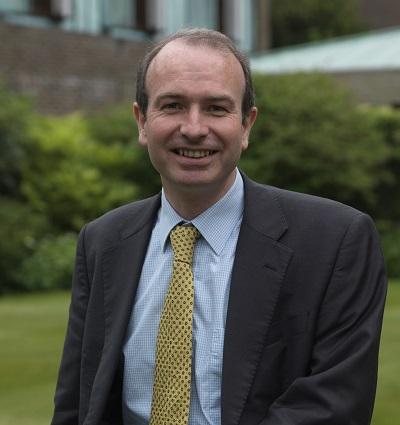By Srecko Koralija
It was with great sadness that I received the news that on Friday the 7th of April my PhD supervisor and professor James Aitken passed away after his second major heart attack. He was widely recognized as an outstanding scholar. He studied at the Universities of Durham and Cambridge. He also worked on projects on Hebrew semantics in Cambridge and on the Septuagint.
I first learned about James’ through his work on Biblical and Hellenistic Greek, Septuagint and Greek papyri. I also had a chance to meet him in person in Cambridge sometime before I officially started working on my PhD at the Faculty of Divinity (University of Cambridge) where James was Professor of Hebrew and Early Jewish Studies. He also became Director of Studies in Asian and Middle Eastern Studies and Chair of the Faculty of Divinity.
From the very first meeting, Jim immediately left an impression on me as a simple, nice, insightful and hard-working person. He was an excellent combination of human warmth and academic rigor. His simplicity and refinement of spirit are fully reflected in his works (bibliography: aitken_publications_2021_0.pdf (cam.ac.uk)) By reading his works, I noticed how attention was paid to factual details [without being scrupulous], words and the way of expression. In 2018, to mark the International Septuagint Day (8 February) I made an interview with him in which he spoke about language research, ancient Greek, and the study of the Septuagint within biblical studies: Interview with Dr James K. Aitken – Interaction of Traditions (wordpress.com).
Here I would like to single out two experiences with Jim from which I really learned a lot. First, in my experience, Jim was a very patient and careful PhD supervisor. His way of teaching and guiding my work from an empty word document to a finished dissertation was so subtle that I never felt pressured. With him I always felt completely free in every sense of the word. He taught me how to search for data and how to develop my own method without wanting to dictate the direction I should go. With him, I learned that a PhD is a process of growing up academically and taking responsibility for the arguments one develops. All these years that I have known him, I have also felt his respect for me as his student and human being. We used to go out for a drink and for a walk around Cambridge many times. The process of writing was one of the many topics we used to discuss during those informal occasions. On one occasion, Jim said: ‘In the process of reading and doing research, write constantly. Do not be afraid of mistakes, change your text, delete and redistribute paragraphs and when you think the text is finished, look at it five more times in separate time intervals and then maybe you will be finally happy with it. Jim said this with a smile, knowing that sometimes there are deadlines to submit drafts and final versions in the research process but I got the essentials: be simple but not simplistic. Being simple requires a lot of learning, thinking and working. Such attention to the text is visible in his research. If one sets himself up that way from the beginning and keeps doing it for a decade or two after his’/her’s PhD, one is well on the way of becoming a fine scholar like Jim. His long experience of reading and writing was visible in his way of commenting on drafts/texts and asking questions at conferences. In a few moves, he was able to “scan” the text and point to the essence of the argument [or its absence].
Second, throughout my PhD, I attended Greek papyri reading sessions with Jim at the Faculty of Divinity. There, several of us honed our knowledge of Hellenistic Greek. Jim taught us how to read Greek scribblings . The choice of texts to read also somehow reflects Jim’s sense of humor. For example, we read P. Lond 7.1976 from 253 BC (Philadelphia) which is about the beer business, and P. Köln 15.594 from 202 or 178 BCE in which it is recounted the attempt of the embalmer Onnophris to donate abandoned kittens to the temple of Boubastis. We also read the Rosetta Stone, various letters and official documents. I remember Jim was never afraid to say he did not know something, and he was also willing to learn from his students. He was truly a great man in his incredible insight and humanity.
Thank you, Jim, for everything and rest in peace!


